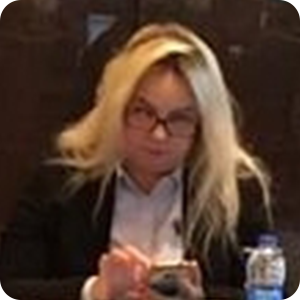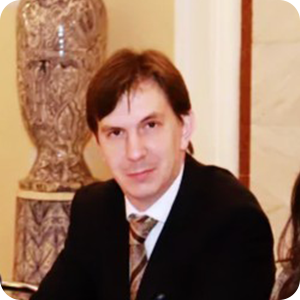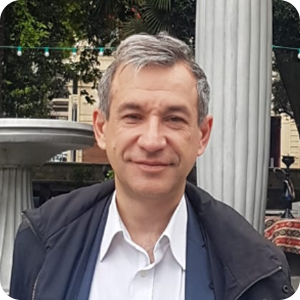The summer of 2023 has begun with the arrival of a new president at the World Bank – Ajay Banga. His overview on “doubling down” on development and climate efforts and accelerating the bank’s evolution to tackle the most pressing global problems has sparked many discussions. “The World Bank’s new vision is to make it a more agile, responsive and effective institution that can address the complex and interconnected challenges of development and climate change” states one of the international experts in this regard. If you want to know more related opinions, read the article below.
Key Takeaways:
- Ajay Banga is the 14th President of the World Bank Group (WB), beginning his five-year tenure as CEO on June 2, 2023. Banga most recently served as Vice Chairman at General Atlantic.
- On the first day of the new job, Banga indicated the need for the WB to become more efficient, slashing the approval time for financing projects which at the moment can take up to three years.
- According to experts, some of the major challenges that the WB under the supervision of Ajay Banga may face may include funding constraints, policy divergence, political barriers, implementation and monitoring.
DevelopmentAid: How will Banga’s vision influence the international development and climate sectors?

“A renewed focus on development and climate efforts by the World Bank’s new President, Ajay Banga, could influence the international development and climate sectors in terms of:
1. Increased Funding: A vision to “double down” on development and climate efforts suggests a commitment to allocate more financial resources to projects and initiatives in these areas. This could lead to increased funding for countries and projects that focus on sustainable development, poverty reduction, renewable energy, climate adaptation, and mitigation.
2. Policy Influence: The World Bank’s influence extends beyond financial support. Its endorsement and backing of specific policies and initiatives related to development and climate change can have a significant impact on national and international agendas. The Bank’s emphasis on these areas could encourage governments, international organizations, and other stakeholders to prioritize and take more ambitious actions in tackling global challenges.
3. Capacity Building and Technical Assistance: By doubling down on development and climate efforts, the Bank can further enhance its role in supporting nations to implement sustainable development practices, promote climate resilience, and adopt green technologies.
4. Collaboration and Partnerships: The World Bank’s renewed focus on development and climate change can foster collaboration and partnerships with other organizations, such as the United Nations, regional development banks, and non-governmental organizations.
5. Innovation and Research: The World Bank can play a crucial role in promoting innovation and research in areas related to sustainable development and climate change.”

“The World Bank’s new vision is to make it a more agile, responsive, and effective institution that can address the complex and interconnected challenges of development and climate change. The bank plans to increase its financing for climate action, support low-carbon and resilient development, and help countries to transition to a green and inclusive economy. The bank also intends to focus on human capital, digital transformation, gender equality, and regional integration as the key drivers of growth and poverty reduction. This vision will influence the international development and climate sectors by providing more resources and assistance for countries to pursue sustainable and climate-resilient development paths.”

“Ajay Banga officially took over as head of the World Bank Group on 2 June 2023 for a five-year term. In his welcome email to staff, Mr. Banga confirmed his vision for the global lender “to create a world free from poverty on a liveable planet”. I expect more loans and technical assistance projects for climate change, combating rising poverty, and restructuring of previous loans for low-income nations. From within the World Bank, increasing the speed of projects’ approval, changing the KPI from how many loans approved and issued to be more down to Earth indicators, e.g., children going to schools, women landing jobs, unemployed people training in entrepreneurship and launching digital start-ups which survive the first 3 years, small enterprises becoming medium-sized, etc. I would also welcome a more active engagement of the private sector and the development of blended finance projects.”
DevelopmentAid: What are his biggest challenges to overcome in this regard?

“Some of the major challenges that the World Bank under the supervision of Ajay Banga may face could include:
1. Funding Constraints
2. Policy Divergence: The World Bank operates in a diverse global landscape where countries may have differing priorities, political climates, and policy preferences. Aligning diverse interests and achieving consensus on development and climate-related policies could present challenges for the Bank.
3. Political Barriers: The World Bank may face resistance or opposition from governments or important stakeholders/focus groups who are reluctant to adopt certain policies or make the necessary changes that may disrupt existing systems or economic models.
4. Implementation and Monitoring: Ensuring the effective implementation of development and climate projects, as well as monitoring their impact, can be complex and require the intensive utilization of resources.”

“The WB faces several obstacles in implementing its vision, such as the COVID-19 pandemic, which has reversed decades of progress in health, education and income for millions of people. The pandemic has also worsened the debt situation of many developing countries which limits their fiscal space and ability to invest in sustainable development. Moreover, the bank has to navigate the geopolitical tensions and divergent interests of its shareholders and stakeholders, who may not always agree on the best way to tackle global problems. The bank will need to overcome these challenges by providing adequate and timely support, building trust and consensus, and leveraging its comparative advantages and partnerships.”

“The first and the biggest challenge, as always suddenly happens, is limited financial resources. To lend more, Mr. Banga faces the necessity to mobilize new funding from the largest and the wealthiest World Bank Group’s shareholders (USA, Japan, China, Germany, and the UK) and, for some of them, this is not the best moment to contribute. Another challenge is a possible conflict regarding how to spend: the “wealthy” Board members are pushing for climate change and the “low-income” members are more interested in fighting poverty and debt traps. Increasing the efficiency and generally introducing radical changes into the large 78-year-old development bank is a difficult task by default for every institution’s President. However, those who know Mr. Banga will say that he has both the experience, character, and connections in the highest circles to overcome these.”
See also: What are the economic predictions for 2023? | Expert’s Opinions
The World Bank is one of the largest lenders in the world, providing significant financial support to its member countries through loans, grants, and other forms of assistance. Check the institution’s open jobs, tenders, grants, and other relevant aspects here. Full access to all these opportunities is just one click away by becoming an Individual Professional Member here.

